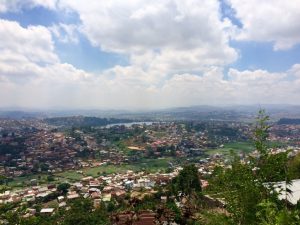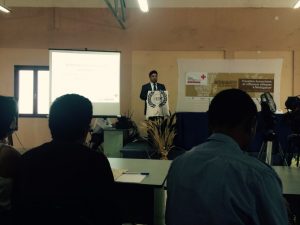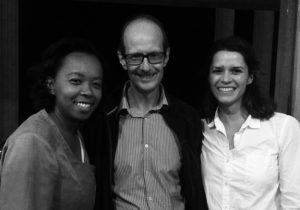Questioning humanitarian action in Madagascar
by Eleanor Davey.
From the Rova of Antananarivo, a former royal site set high on a hill, the view over the Madagascan capital extends for miles. ‘Tana’ – as it is nicknamed – was founded in the seventeenth century, adopted as the capital under French colonisation, and remains the largest city in Madagascar today. It is a lively city, with constant traffic (and traffic jams), houses of wood and brick, built on steep hills. When the rain falls, these hills become torrents.
I was in Tana to participate in an event organised by the Fonds Croix-Rouge Française. Over two days, on 29-30 November, I had the privilege of attending a seminar on the situation, prospects, and limitations of humanitarian action in Madagascar. In the opening session we heard about the oscillations between sudden emergencies and cyclical, chronic crises, the complex needs facing a country that experiences cyclones and floods, but also protracted drought, and where many live in extreme poverty. Repeated political crises have had a major impact on the economy, which is at a lower point now than it was at the time of independence in 1960. This point was powerfully made by researchers from the Institut d’études politiques de Madagascar (IEP), co-hosts of the seminar. ‘In Madagascar we have hardly ever had war,’ we heard, ‘but we have never had peace.’
Speakers from a range of backgrounds gave their perspectives on how to approach humanitarian action, its relationship with social change, the role of research, and the place and nature of humanitarian ethics. We heard from professors at Madagascan universities – such as the IEP, the University of Antananarivo, and the Catholic University of Madagascar – as well as from representatives of Madagascan and international non-governmental organisations, UN and Red Cross agencies, government representatives, and the private sector. The event was also supported by the French Institut de Recherche pour le Développement.
For me, used to humanitarian debates of a different kind, one of the striking features of the discussions in Tana was their grounding in the local difficulties and priorities. While we discussed structures, modes of action, and incentives, this was not in order to speculate about the ‘humanitarian system’ or its ‘architecture’ but to consider the way that aid worked – or not – in situ. The lack of baseline data about the situation in Madagascar emerged as a significant problem on multiple levels, from understanding needs, to evaluating efforts, and communicating the situation to outside audiences.
The Fonds Croix-Rouge Française, based in Paris, supports debates like this through its programme of events, publications, and grants. Its mission is to encourage and promote research on the stakes and principles of humanitarian action. As its President, Professor Jean-François Mattéi, described to me, this meant challenging major divisions: between research and practice, between North and South. That the Fonds also seeks to break down the divide between Francophone and Anglophone communities of academics and practitioners can be seen most clearly in the publications it supports, including the bilingual, collaborative journal Alternatives Humanitaires/Humanitarian Alternatives.
I was a contributor to the first edition of that journal, and had the enormous privilege of receiving one of the research prizes awarded by the Fonds Croix-Rouge Française in 2016. This was the honour that brought me to Madagascar, offering the opportunity to learn about the country and to make connections with those I met there. It also allowed me to meet two inspirational researchers: Kanto Jude Ramanamahefa, a medical anthropologist who studies the relationship between patients and caregivers, and Alula Pankhurst, director of the Young Lives project and recipient of the Prix Honorifique for his commitment to research and action in the long term to understand and improve the experiences of young people. To share their company and to become part of the foundation’s group of prize winners was both humbling and uplifting.





0 Comments